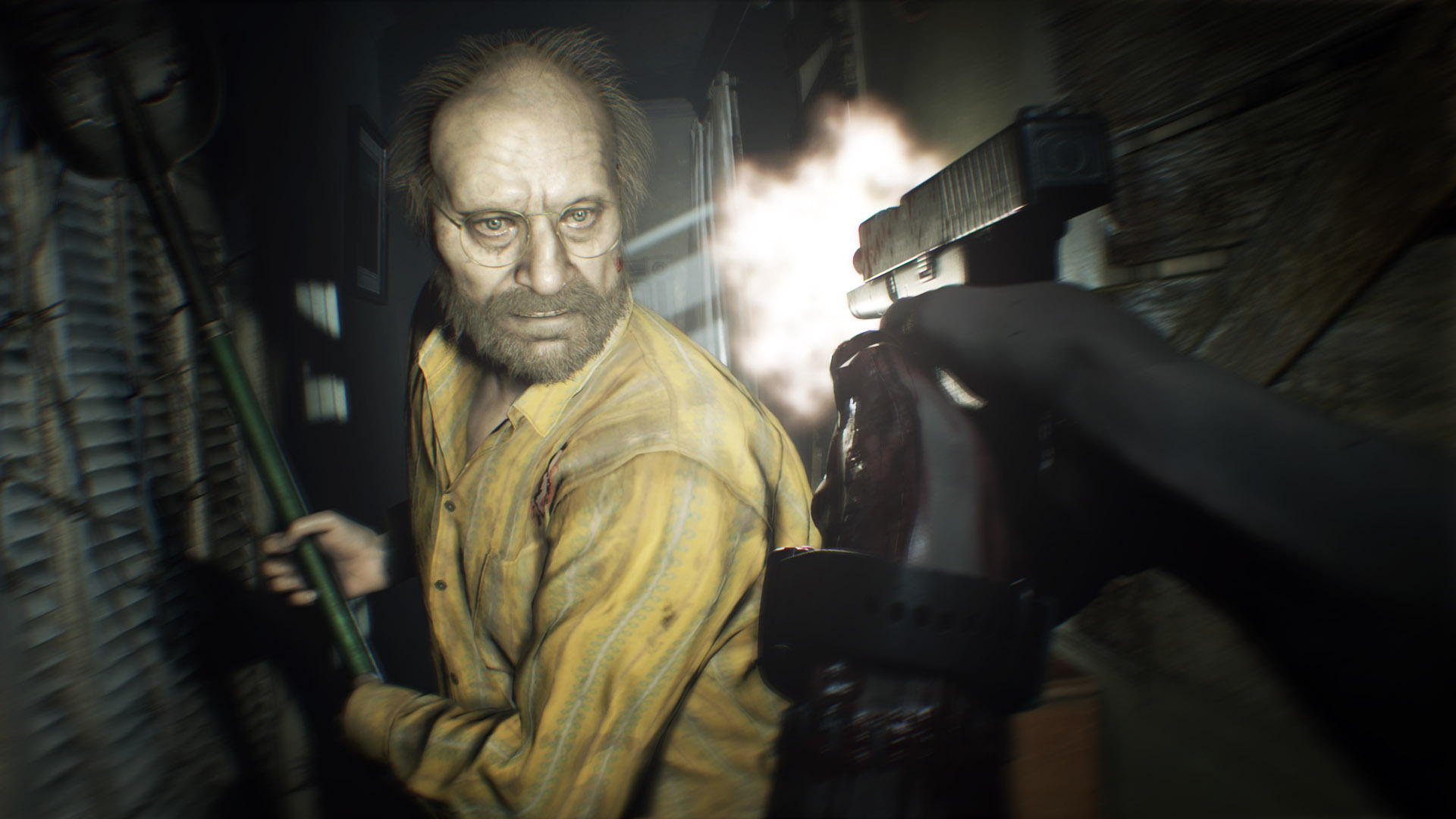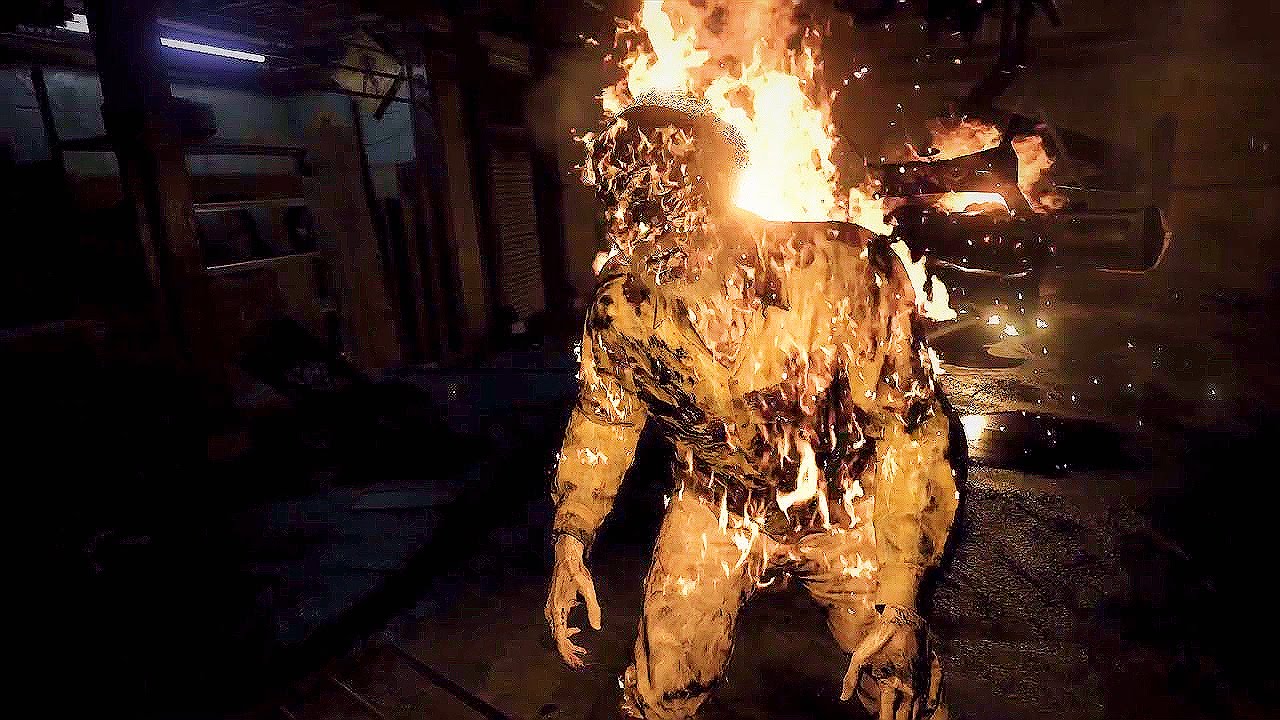Resident Evil 7 isn’t perfect, but if you ask me, it’s pretty damn close.
That’s part of the challenge that Resident Evil Village has – it’s not just following up on an entire beloved series, but also on a specific, excellent game – one that twisted or flipped various franchise traditions. But you know what the single best thing is in Resident Evil 7? The power creep.
Power creep is a standard feature of most video games, of course. As you progress through a game, you get better abilities or equipment and face bigger, badder challenges. The genres where this isn’t present are pretty few and far between, like fighting games. Generally, though, it’s ever present – in some genres more subtle than others.
That gradual progression can easily feel cheap and unearned – be that in the sense of a once-mighty character getting depowered at the start of a new adventure (hey, Samus!), or simply in that newly-attained power feeling unearned. But in Resident Evil 7, the growth of protagonist Ethan’s abilities and the way it dictates the pace and tone of the game is sublime – and it’ll be difficult for RE8 Village to match.
RE7 was of course something of a soft reboot, featuring only minimal elements from past Resident Evil titles. In this, the progression also tracks: it feels like the player is taken through the complete trajectory of the Resident Evil series over the course of the game. You start out afraid, briefly weaponless and then only with the weakest of pistols. You flee from enemies in fear, and open every door with trepidation.
Through a combination of equipment and understanding what you’re up against, however, your skill set grows. By RE7’s penultimate hours you are a veritable commando, ready to take down beasts and monsters. Ethan doesn’t punch a boulder like Chris would, but by the end of the game you might mistakenly feel like he could.

The escalation here matches the series in general, which goes from slowly plodding around a mansion in fear to drop-kicking zombies in faster-paced action. Written down, it doesn’t sound any different from your average video game progression, but something about the execution in RE7 feels different.
Perhaps it’s due to how the game handles. Ethan is not a trained soldier, and so there’s a looseness to his aiming, shooting and general movement that is different to most first-person games. This helps to enhance the terror in the earlier phases of the game where you don’t feel equipped to handle what you’re up against, but also means that later on, once you’re geared up, something still feels distinctly rookie about this protagonist. He’s simply managed to cobble together the gear – he hasn’t really become a super soldier.
There’s also a flashback used in genius fashion. Our protagonist gradually grows as he tackles the Baker family. He’s a blank slate of a character, but his dialogue nevertheless goes from abject terror of the Bakers to verbally challenging them, reflecting his confidence in all the player has learned and gathered on the journey so far. And then comes the flashback.
The flashback is a microcosm of the rest of the game – starting out slow but quickly escalating to the use of submachine guns and remote control explosives. It serves vital story purposes, but also almost functions as a second tutorial that tells you that the horror is over, preparing you for an action-packed finale to the game.

By the time the player’s perspective is switched back to Ethan and the present day, they are mentally prepared for what is to come. Ethan’s final push into an underground mine, then back to the house where it all began for a final showdown, practically feels like a different game. This is where RE7 channels RE4-6, after otherwise a whole game of channelling a more bootstraps survival horror experience. Saying that, it doesn’t sound like it should work – but it does. That finale of RE7 is cathartic and exciting – and in many ways, it completes Ethan’s journey from everyman to proper Resident Evil protagonist, unphased by that universe’s craziness. It also tops off what is, for my money, a masterclass in video game pacing in a mechanical sense.
That’s why this is relevant now, and why Resident Evil Village has such a towering task ahead of it. What RE7 was to the original game, Village seems to be to the much more action-focused RE4. We’ve already seen towering, giant enemies, a merchant with a wide range of upgradeable weapons, and what looks like generally more frenetic combat. This all makes sense; it stars the same character, and even if he is a fairly boring blank slate, it’d be silly for Ethan to go backwards.
But one wonders if the true magic of that first two thirds of RE7, where the player is helpless and weak, but gradually claws their way out of the dirt, will be impossible to replicate. Perhaps RE8 goes for something different out of the gate. After delivering RE7, I have faith in Capcom and this team, and I can’t wait to see what they do with the pacing of Village.
The post Resident Evil 7 had absolutely perfect pacing – and it’ll be tough for Village to beat appeared first on VG247.

